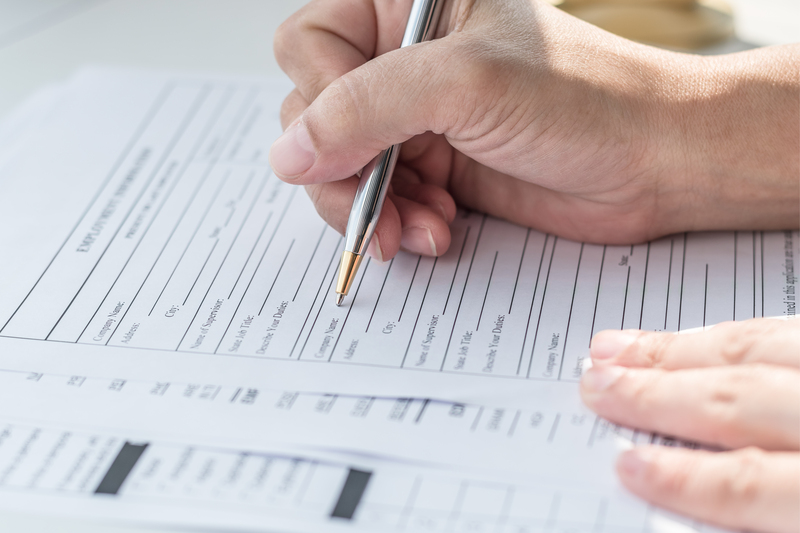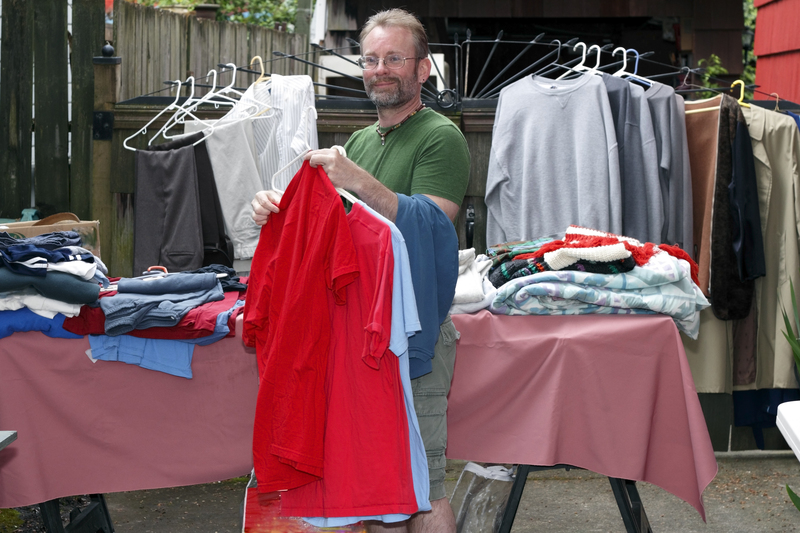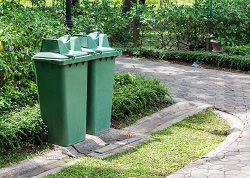The Ultimate Guide to Plant Pot Recycling and Disposal
Posted on 15/10/2025
The Ultimate Guide to Plant Pot Recycling and Disposal
Gardening enthusiasts often accumulate a surprising number of plastic, ceramic, and terracotta pots. Over time, these containers outlive their purpose or become damaged, leading to the important question: what should you do with old plant pots? This comprehensive guide covers plant pot recycling, responsible disposal, and creative reuse, ensuring your gardening remains sustainable and eco-friendly.
Why Is Plant Pot Disposal Important?
Proper plant pot recycling and disposal isn't just a matter of keeping your shed or garden tidy--it's crucial for the environment. Millions of plastic pots, trays, and tags are used each year. If not managed responsibly, these items contribute to landfill waste and increase plastic pollution. Even biodegradable pots and terracotta containers have environmental impacts if disposed of improperly.
The Environmental Impact of Improper Disposal
- Plastic waste: Traditional plastic pots are non-biodegradable, taking centuries to break down in landfills.
- Microplastics: As plastic pots degrade, they release tiny microplastics, contaminating soil and water.
- Resource depletion: Ceramic and terracotta pots require natural resources and energy, making reuse important.
- Pollution: Burning or dumping pots releases toxins into the air, soil, and water.

Understanding Plant Pot Materials
Knowing the type of plant pot you wish to recycle or dispose of is the first step towards responsible handling:
- Plastic plant pots (PP5): Usually made from polypropylene, often recyclable but depends on your local facility.
- Ceramic pots: Fired clay, attractive but not accepted in regular recycling programs.
- Terracotta pots: Natural clay, porous but breaks easily and not commonly recyclable with curbside programs.
- Biodegradable pots: Made from peat, coir, cow manure, or compressed paper and can be composted under the right conditions.
- Metal pots: Usually recyclable with scrap metal but should be handled with care if painted or coated.
How to Recycle Plastic Plant Pots
Plastic pots are the most common type in need of recycling. However, recycling them properly can be confusing due to varying local rules.
Step-by-Step Guide to Plastic Pot Recycling
- Check for labels: Most recyclable pots have a "PP5" or "resin code 5" label on the bottom. Look for this symbol before proceeding.
- Clean thoroughly: Remove plant debris, soil, and labels. Dirty pots can contaminate an entire recycling load.
- Check local guidelines: Visit your municipality's website or call the waste management authority. Some curbside programs accept PP5 plastics; others do not.
- Visit garden centers: Many home improvement stores and nurseries offer plant pot recycling programs. They often have dedicated collection bins for empties.
- Bulk drop-off: Some recycling facilities accept plastic pots in bulk. Organize a collection with friends or your community for a group drop-off.
Top Tip: Keep a box for used pots and once it's full, schedule a recycling drop-off trip!
What If Curbside Recycling Isn't Available?
- Garden Center Take-Backs: Major retailers like Home Depot, Lowe's, and local nurseries sometimes offer special recycling bins for plastic pots and trays. Ask at the counter or check their websites.
- Community Programs: Watch for local garden swaps, environmental fairs, or city recycling events that specifically accept plastics and gardening supplies.
- Mail-Back Programs: Some organizations and nurseries offer mail-in recycling for horticultural plastics (though this is less common and may incur fees).
How To Dispose of Ceramic and Terracotta Pots
Ceramic and terracotta plant pot disposal requires a different approach. These pots are not typically accepted in household recycling because they do not melt and reform like glass or metal. Instead, they're considered a form of inert waste.
Best Practices for Ceramic and Terracotta Pot Disposal
- Reuse creatively: Broken ceramics can be used in mosaic projects, as garden mulch, or in potted plant drainage.
- Community Reuse: Offer unbroken pots for free or cheap on platforms like Facebook Marketplace, Freecycle, Craigslist, or via local gardening clubs.
- Construction fill: Some construction companies accept broken ceramics as aggregate for road-building or drainage.
- Landfill (as a last resort): If pots are unusable and not accepted for construction fill, wrap the shards securely and dispose of them in the garbage.
Note: Never put ceramic or terracotta pots in your curbside glass or plastics recycling bin--they can damage recycling equipment.
Composting and Biodegradable Pots
Biodegradable plant pots are increasingly popular among eco-conscious gardeners. Made from peat, coconut coir, cow manure, or recycled paper, these pots are designed to be planted right in the ground or composted after use.
How to Compost Biodegradable Pots
- Remove any labels or staples: Only compost pure organic materials. Paper tags and metal fasteners should be taken off.
- Shred or break up pots: Smaller pieces decompose faster in a home compost pile.
- Place in active compost: Bury the pot(s) in a hot, moist compost heap to accelerate decomposition.
- Monitor: Some thicker pots take a season or more to fully break down, in which case check for remnants before using compost in your garden.
Pro Tip: Check if biodegradable pots are truly compostable at home, or if they require industrial composting conditions by reading packaging labels.
Creative Ways to Reuse Old Plant Pots
Recycling isn't the only answer! Reusing plant containers saves energy, resources, and money while adding personality to your garden or home. Here are some innovative ideas:
- Seed starting: Old plastic pots are perfect for seed trays or small plant starts.
- Tool organizers: Use small pots for keeping garden tools, markers, or kids' art supplies sorted.
- Craft projects: Paint and decorate pots for unique home decor, candle holders, or even festive ornaments.
- Protective cloches: Use large pots flipped upside down to shield young plants from frost or pests.
- Water gardens: Waterproof or glazed pots make great mini water features or bird baths.
Looking for inspiration? Browse Pinterest or local gardening blogs for hundreds of upcycling ideas for plant pots!
Tips for Reducing Plant Pot Waste
The best way to deal with plant pot disposal is prevention. Here's how to minimize your environmental impact when gardening:
- Choose sustainable pot materials: Favor biodegradable or recycled-content pots where possible.
- Support nurseries with return schemes: Some growers accept back empty pots or use compostable packing.
- Buy in bulk: Purchasing larger plants or seeds instead of multiple small seedlings reduces the number of pots you acquire.
- Store pots correctly: Clean, dry, and stack unused pots so they're ready for reuse.
- Say "no thanks" to excess: Ask retailers to keep or recycle pots if you're buying bare-root or pot-less plants.
Frequently Asked Questions About Plant Pot Recycling
Are All Plant Pots Recyclable?
Not all plant pots are recyclable through curbside programs. Most communities only accept clean plastic pots marked PP5. Ceramics, terracotta, and even black plastics are often unwelcome. Check your local guidelines before placing any plant pot in the recycling bin.
Can I Put Terracotta Pots in the Recycling Bin?
No, terracotta and ceramic pots should not go in regular recycling. Reuse them if possible, or dispose of them in landfill or via a construction/demolition waste facility.
What Should I Do With Black Plastic Pots?
Black plastic is difficult for sorting machines to detect and often isn't accepted in municipal recycling. Check with local garden centers for a dedicated black plastic plant pot recycling scheme, or reuse them whenever you can.
Do Garden Centers Accept Any Type of Pot?
Most only collect clean, rigid, plastic pots and trays--no soft plastics, ceramics, or dirty containers. Always confirm policies before dropping off.

Summary: Making Plant Pot Recycling Second Nature
With a bit of planning, eco-friendly plant pot recycling and disposal can become part of your gardening routine. Identify the material of your old pots, clean them, and find the best route: recycling, creative reuse, donation, or--when needed--responsible disposal.
- Plastic pots: Clean and recycle at garden centers or via municipal programs, if available.
- Ceramic/terracotta: Upcycle as garden art, donate, or use as fill before landfill disposal.
- Biodegradable: Compost safely at home or in commercial facilities.
By following these practices, you'll help reduce landfill waste, protect the environment, and keep your garden space both tidy and beautiful. Together, gardeners can make a real difference--one plant pot at a time!
Further Resources on Sustainable Gardening
- Royal Horticultural Society - Recycling Plant Pots
- Gardeners' World - What to do with plastic pots
- EPA - Recycle
Start your eco-friendly journey today--spread the word about plant pot recycling and help build a greener tomorrow!

 020 3859 5580
020 3859 5580 020 3859 5580
020 3859 5580





 House Clearance
House Clearance Rubbish Collection
Rubbish Collection House clearance in London has never been easier, as Junk Removal Services can take care of your every need. From individual house junk...
House clearance in London has never been easier, as Junk Removal Services can take care of your every need. From individual house junk... With Junk Removal Services you can be confident that you’ll receive the most professional and affordable rubbish collection service within the London...
With Junk Removal Services you can be confident that you’ll receive the most professional and affordable rubbish collection service within the London...





